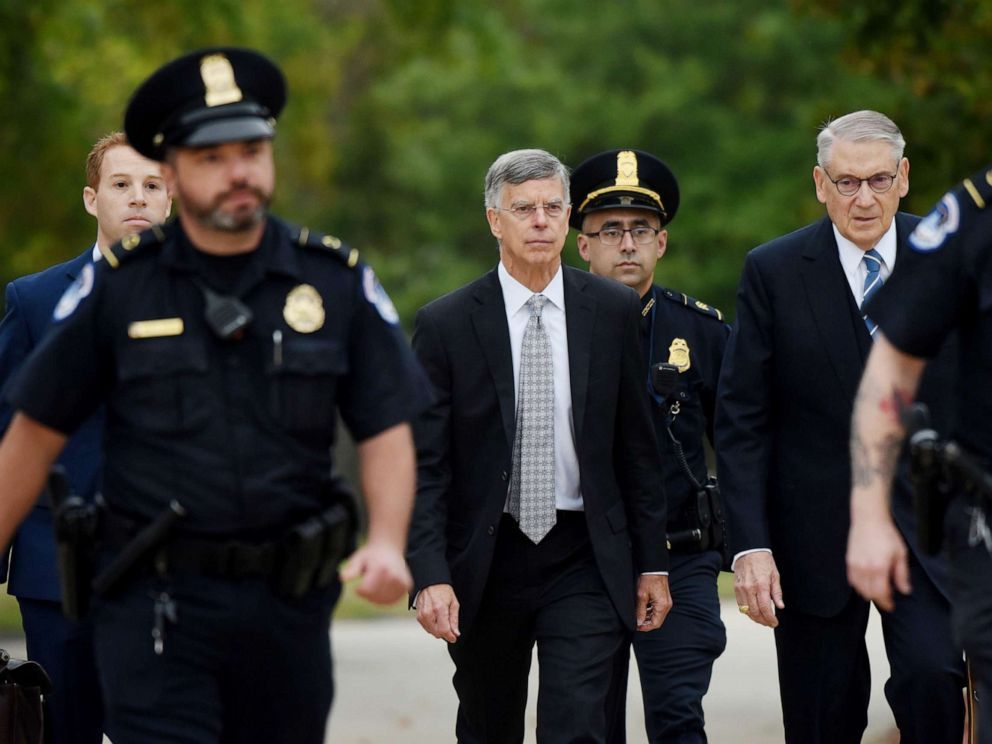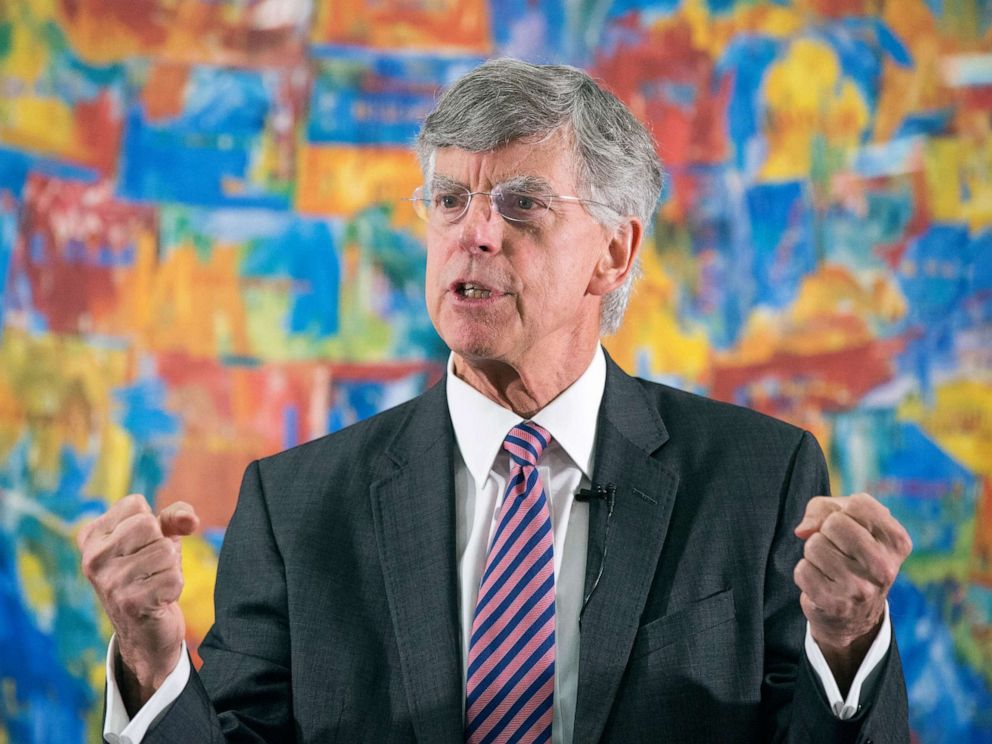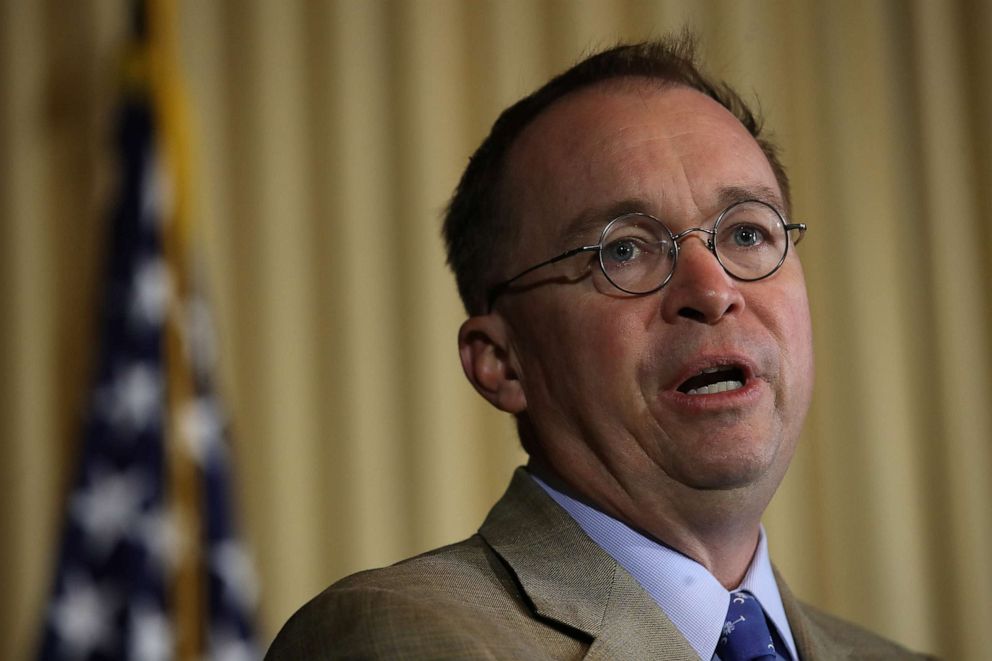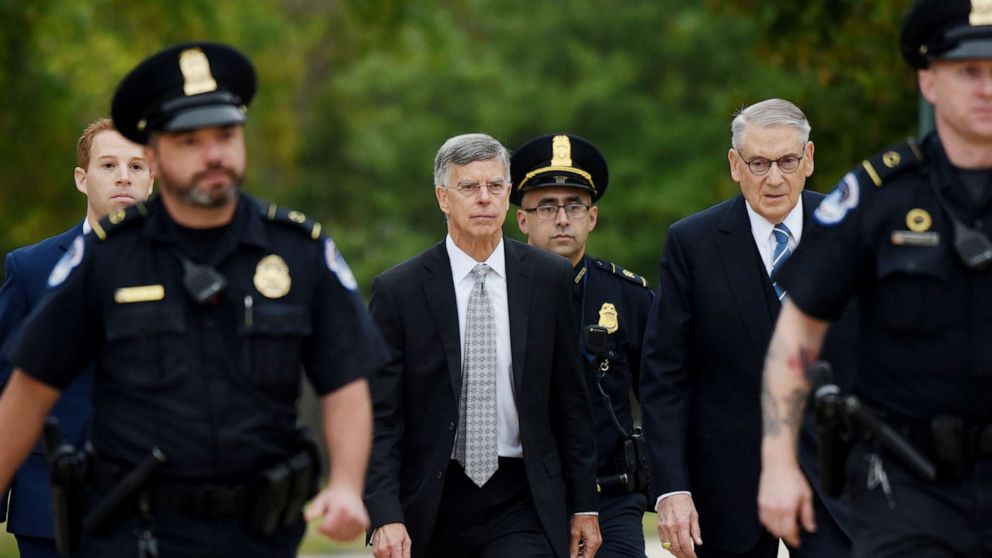[ad_1]
William Taylor, the top diplomat in Ukraine who privately raised concerns about whether nearly $400 million in U.S. aid to Ukraine was being withheld for political purposes, arrived to face questions from House impeachment investigators Tuesday.
 Olivier Douliery/AFP/Getty Images
Olivier Douliery/AFP/Getty Images
Democrats, who view him as one of their most important witnesses, have worked to secure his testimony for weeks after Kurt Volker, the former U.S. envoy to Ukraine, shared text message exchanges with Taylor and other officials with Congress earlier this month.
It wasn’t clear whether Taylor was appearing under subpoena.
In the exchanges provided to Congress, Taylor and other diplomats discussed a potential White House visit for Ukrainian President Volodymyr Zelenskiy, as well as efforts to pressure Ukraine to conduct investigations — including into a discredited conspiracy theory allegedly involving Democrats and the 2016 election — sought by President Donald Trump.
 Aleksandr Kondratuk/Sputnik via AP
Aleksandr Kondratuk/Sputnik via AP
In a July exchange with Gordon Sondland, the U.S. ambassador to the European Union, Taylor said the Ukrainian president was “sensitive about Ukraine being taken seriously, not merely as an instrument in Washington domestic, reelection politics.”
“Absolutely, but we need to get the conversation started and the relationship built, irrespective of the pretext. I am worried about the alternative,” Sondland wrote back.
On Sept. 1, Taylor raised concerns about the circumstances surrounding the withheld foreign aid to Ukraine, which was not released until Sept. 11.
“Are we saying that security assistance and WH meeting are conditioned on investigations?” he asked Sondland.
“Call me,” Sondland, who testified before lawmakers last week, replied.
In an Sept. 9 exchange, Taylor said it would be “crazy to withhold security assistance for help with a political campaign.”
“Bill, I believe you are incorrect about President Trump’s intentions. The President has been crystal clear: no quid pro quo’s of any kind,” Sondland replied in a message five hours later. “The President is trying to evaluate whether Ukraine is truly going to adopt the transparency and reforms that President Zelenskiy promised during his campaign.”
Sondland testified to lawmakers that he spoke to Trump before replying to Taylor, and that Trump told him he wanted “nothing” from Ukraine and said repeatedly that “there is no quid pro quo,” according to his opening statement to lawmakers last week, obtained by ABC News.
“I tried hard to address Ambassador Taylor’s concerns because he is a valuable and effective diplomat and I took very seriously the issues he raised,” Sondland testified, according to a copy of his statement to Congress. “I did not want Ambassador Taylor to leave his post and generate even more turnover in the Ukraine mission. I further encouraged Ambassador Taylor to contact Secretary Pompeo, as I followed up as far as I could go.”
 Win Mcnamee/Getty Images, FILE
Win Mcnamee/Getty Images, FILE
Taylor’s appearance on Capitol Hill comes as the White House has scrambled to backtrack on comments from acting chief of staff Mick Mulvaney about the withholding of the Ukraine aid over the summer.
At a White House briefing last week, Mulvaney acknowledged the aid was withheld in part until Ukraine agreed to investigate an unsubstantiated theory about Ukraine’s involvement in the 2016 election. He later walked back the statement in a written statement, and again on Sunday.
Taylor is the seventh witness to appear before impeachment investigators and the latest high-profile diplomat to cooperate with the inquiry over the objections of the White House.
On Monday, acting White House budget director Russ Vought said he and Michael Duffey, a deputy who oversees national security programs at the Office of Management and Budget, would not cooperate with requests for depositions this week.
I saw some Fake News over the weekend to correct. As the WH letter made clear two weeks ago, OMB officials – myself and Mike Duffey – will not be complying with deposition requests this week. #shamprocess
— Russ Vought (@RussVought45) October 21, 2019
In a Cabinet meeting opened to White House reporters Monday, Trump suggested Republicans aren’t doing enough to defend him from the impeachment inquiry, and that GOP lawmakers “have to get tougher and fight.” Democrats killed a motion in the House Monday evening to censure House Intelligence Committee Chairman Adam Schiff brought forward by Republicans over concerns about his handling of the investigation.
On Tuesday, Trump again blasted the impeachment investigation, likening it to a “lynching’ in a tweet, which prompted backlash from Democrats and some Republicans on Capitol Hill.
Taylor previously served as the U.S. ambassador to Ukraine from 2006 and 2009 after working in the Middle East and Afghanistan. A West Point graduate who served in Vietnam and Germany, Taylor was most recently working as the executive vice president of the U.S. Institute of Peace, before rejoining the State Department.
On Wednesday, Deputy Assistant Secretary of Defense Laura Cooper is expected to appear on Capitol Hill, according to an official working on the inquiry. Philip Reeker, the acting assistant secretary of European and Eurasian Affairs, is now expected to testify on Saturday morning, the official said.
While many Democrats hope the impeachment probe will wrap up by the end of the year — and that the relevant committees hold public hearings and prepare articles of impeachment for a floor vote by the holidays — others have suggested an extended timeline.
“I don’t like artificial deadlines, we should do our work, we should do it well,” House Foreign Affairs Committee Chairman Eliot Engel, D-N.Y., told ABC News about wrapping up before Democratic presidential primary voting begins early next year. “We shouldn’t do it one minute more than we have to, but we shouldn’t do it less either.”
[ad_2]
Source link

